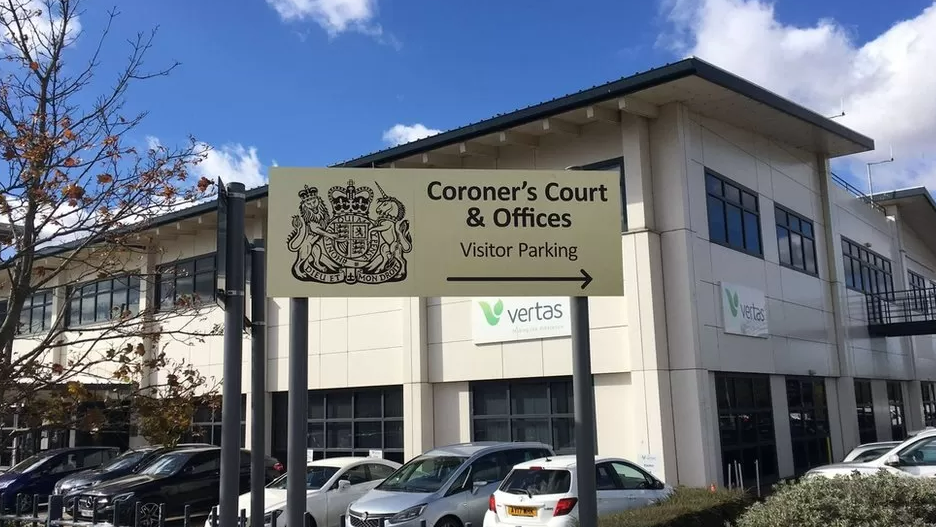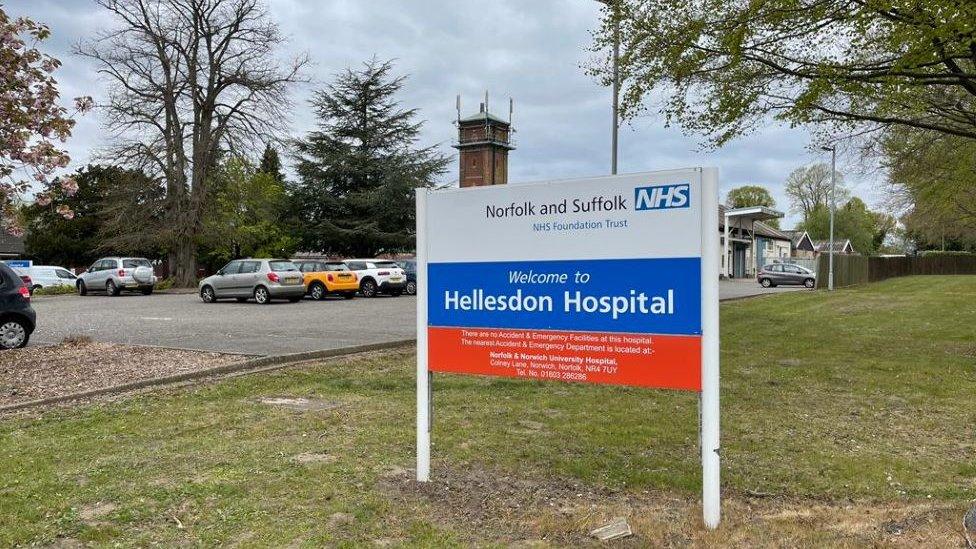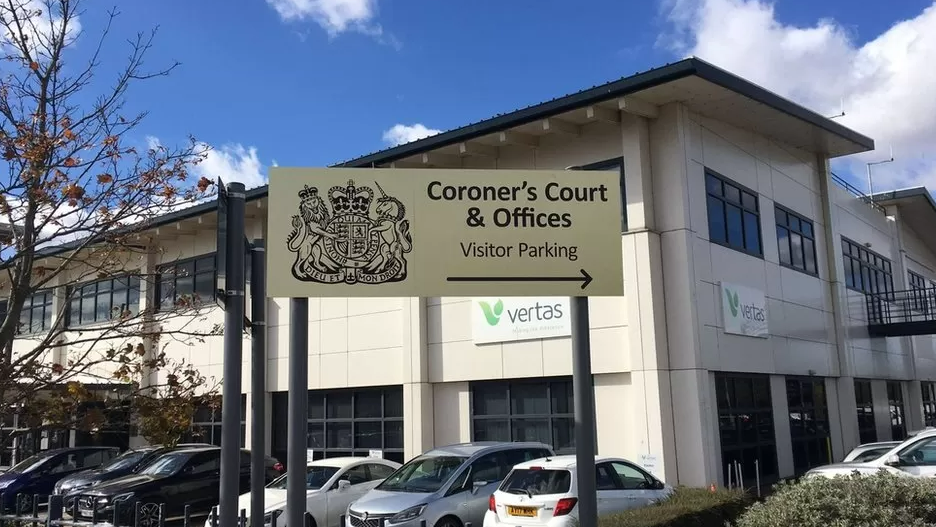Coroner highlights risks with some medications

Suffolk's coroner has written to the Department for Health and Social Care with concerns
- Published
A coroner has expressed concerns around medications that increase suicidal behaviour as well as pressures on mental health services.
Nigel Parsley, the senior coroner for Suffolk, published a Prevention of Future Deaths Report, external following the death of Gemima Christodoulou-Peace, 25, who died in Ipswich in July 2023 after struggling with her mental health.
The report detailed the difficulty clinicians can face around checking the side effects of medication, as well as pressures when someone requires urgent mental health help.
Mr Parsley directed his report to Wes Streeting, the Secretary of State for the Department of Health and Social Care, who said the government was fixing a "broken system".
At Ms Christodoulou-Peace's inquest, Mr Parsley said there was insufficient evidence to show that she had intended to take her own life for several reasons including the "impulsivity associated with her diagnosed mental illness".
She had been taking medication previously that was known to increase suicidal behaviour, but Mr Parsley said it was unknown when she last took this and none was found in her system at her time of death.
She first reported a decline in her mental health in March 2023 and requested to be placed back on previous medication, according to his report, which followed the inquest, previously reported on by the Ipswich Star, external.
However, her GP was unable to do so without input from a prescribing mental health practitioner and so a referral had to made, which she did not receive.
She reported her low mood several times again but declined an offer of crisis support following an urgent referral to the mental health services.
She said she wanted a medication review with the mental health team she had previously seen.
'An ideal world'
A risk assessment was also taken into Ms Christodoulou-Peace state of mind, which deemed her to be someone of "moderate" risk, which meant there was a target response time of two to four weeks.
However by the time of her death, she had still not be seen by a treating mental health practitioner that could have prescribed her with medication.
Clinicians who gave evidence in her inquest said "in an ideal world" resources would have allowed for "much more timely investigations".
"Gemima’s treatment assessment was booked for 8 August 2023 - 14 days after her tragic death," Mr Parsley added.
Coroner raises 'deep concerns' after woman's death
- Published5 February 2024
Paramedic who took own life was 'hugely let down'
- Published27 January 2024
Bereaved families' campaigners 'not listened to'
- Published19 January 2024
In the report, Mr Parsley also raised concerns that currently, in order to identify if any medications have a risk of increasing suicidal behaviour, clinicians would need to undertake an independent review on every prescription medication a patient is taking.
However he said that for some medications this side effect "is very rare" and so it is "highly unlikely that a treating clinician could know all the medications identified as having a risk of increasing suicidal behaviour".
Mr Parsley said there was not a single reference point available for a clinician to easily check to "quickly identify if a patient is on a prescribed medication which is known to increase suicidal behaviour in some patients".
'Improve patient safety'
Another concern raised was that Norfolk and Suffolk NHS Foundation Trust, external, the county's mental health trust, only had a limited number of calls with patients being recorded.
Mr Parsley said this could have an impact on a patient's treatment if different clinicians took on patients whom they had not dealt with before and could then not easily review their cases.
Mr Parsley said that having recordings available with increased accessibility to them "would improve patient safety".
A Department for Health and Social Care said their "deepest sympathies" were with Ms Christodoulou-Peace family and friends.
"It is important that we learn the lessons from every prevention of future deaths report and the department will consider the report carefully before responding in due course," they continued.
"People with mental health issues are not getting the support or care they deserve, which is why we will fix the broken system to ensure we give mental health the same attention and focus as physical health."
The Norfolk and Suffolk NHS Foundation Trust have been approached for comment.
If you are affected by any of the issues in this article you can find details of organisations that can help via the BBC Action Line.
Get in touch
Do you have a story suggestion for Suffolk?
Follow Suffolk news on BBC Sounds, Facebook, external, Instagram, external and X, external.
Related topics
Stories like this
- Published23 April 2024

- Published16 April 2024

- Published15 March 2024
